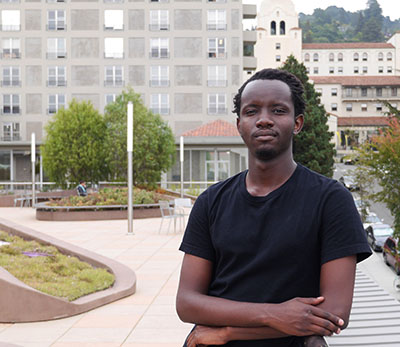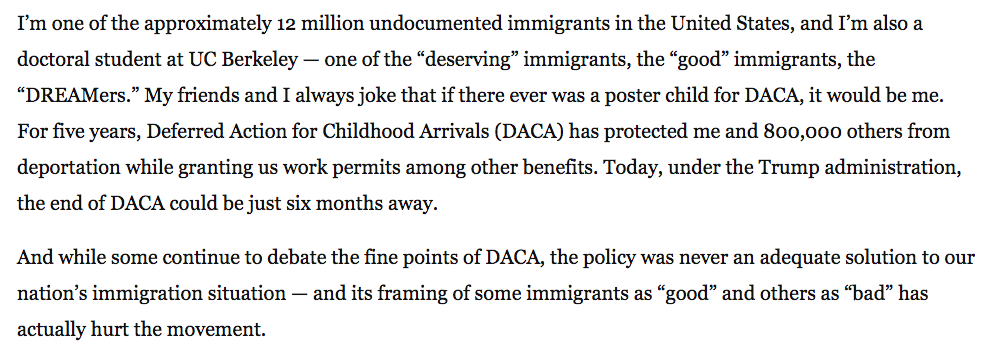
Ph.D. student in the Jurisprudence and Social Policy program at Berkeley Law
Hometown: Nairobi, Kenya by way of Rockville, MD
Undergrad: CCNY 2016
Affiliations: Founder and Executive Director, Undocumental
After Trump got elected last November, it became pretty clear the narrative against all immigrants would be making a turn for the worse. My goal for Undocumental is for it to become a forum where illegalized immigrants use political analysis to take control of the political discourse on immigration where they are being talked about, but not talked to. I reached out to a few people and the concept quickly gained a lot of support. With that support I was able to recruit an editorial staff with various disciplinary backgrounds from different parts of the country. I also had a lot of support from the Human Rights Center at Berkeley Law who helped me build capacity as well as helped us put together our formal launch this past November.
The mission is to offer incisive analysis of noncitizenship — not only looking at policy and trying to change people’s views, but also analyzing the debate itself around illegalized persons.
The intent of the phrase “illegalized” is to shift the focus onto institutions that make people illegal. The way undocumented immigrants are talked about — especially when the phrase “illegal immigrants” is used — is as if illegality is part of who they are, there’s something about them as a person that is intrinsically illegal. Focusing on illegalization also gives us a new framework from which to analyze certain policies. For example, though a policy may look to legalize a certain group of people on paper, it is imperative to as whether or not it illegalizes other people in turn.
Editor’s note: This concept was at the heart of an op-ed Joel published in the Washington Post following President Trump’s announcement that he would end the DACA program, excerpted here:

“How DACA pits ‘good immigrants’ against millions of others,” Washington Post, September 7, 2017
See also, “Noncitizenship and the case for illegalized persons,” UC Berkeley Blog, January 24, 2017